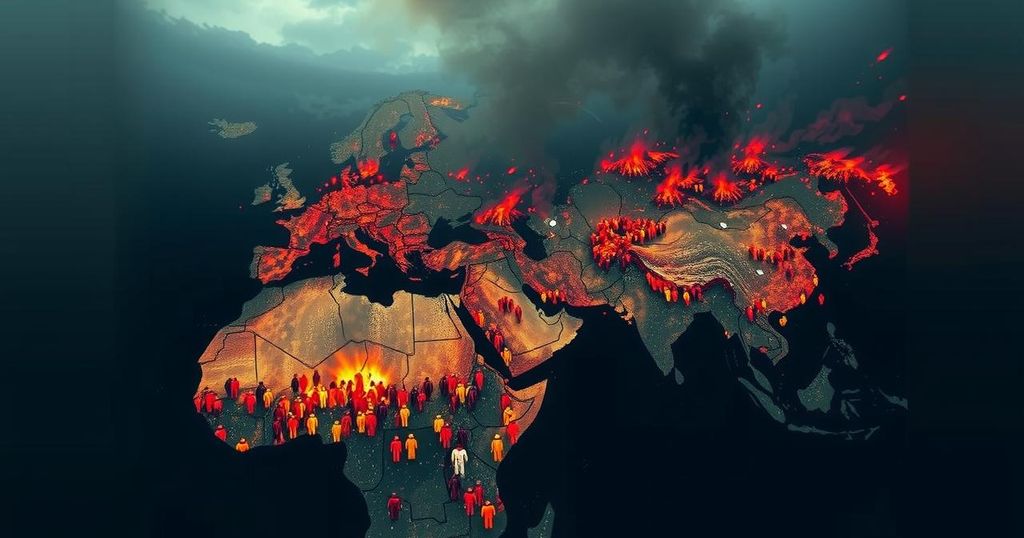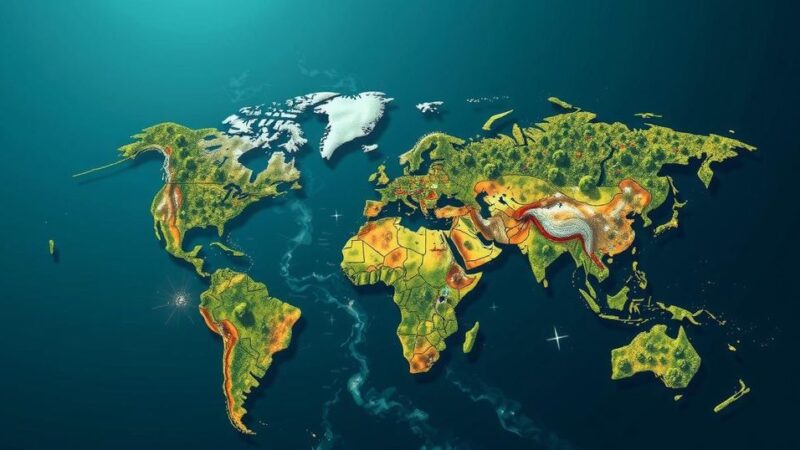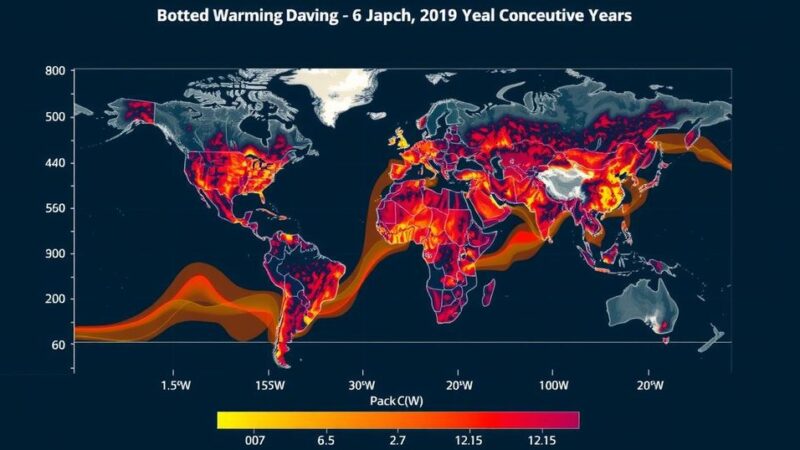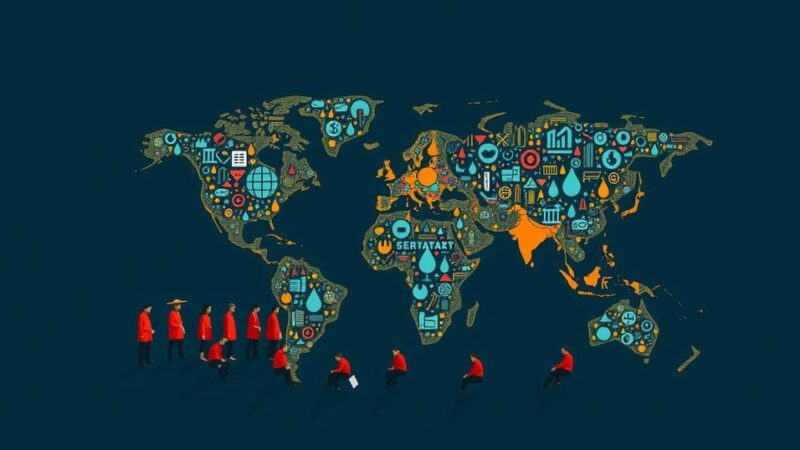The UN reports that climate change is worsening global displacement, urging for greater investment to address the crisis. Key findings indicate that millions are being uprooted due to climate shocks and conflicts, with many refugees living in highly vulnerable nations. The situation is likely to escalate without international funding and support for climate resilience and adaptation efforts.
The United Nations has reported that climate change is significantly exacerbating the global refugee crisis, uprooting more individuals from their homes and intensifying already adverse conditions experienced by the displaced. As international climate discussions continue in Baku, the UN refugee agency has urged for heightened investment in mitigating the risks associated with climate-induced displacement. A recent report emphasizes the impact of climate shocks coupled with conflict in regions such as Sudan, Somalia, and Myanmar, worsening the plight of vulnerable populations taking refuge in increasingly hostile environments. UNHCR chief Filippo Grandi highlighted that “across our warming world, drought, floods, life-threatening heat and other extreme weather events are creating emergencies with alarming frequency”, underscoring the urgency of the situation. Notably, 75 percent of the displaced populace resides in countries highly exposed to climate-related hazards. UNHCR data revealed that the number of individuals forcibly displaced due to conflict has doubled within the past decade, reaching 120 million. Moreover, weather-related disasters accounted for the displacement of approximately 220 million people internally over the last ten years, averaging nearly 60,000 displacements each day. Andrew Harper, UNHCR’s special advisor on climate action, lamented the insufficient funding available to support these individuals and their host communities. He observed that most refugee settlements are situated in lower-income countries located in environmentally vulnerable areas such as deserts or flood-prone regions, often lacking critical infrastructure. The situation is projected to deteriorate further, with the number of nations facing extreme climate-related hazards expected to surge from three to 65 by 2040. The forecast indicates that refugee settlements will experience excessive heat days double the current frequency by 2050, posing health risks and threatening agricultural viability. Harper emphasized the growing loss of arable land in regions vulnerable to climate extremes, combined with a rising population. Consequently, UNHCR is urging participating decision-makers at COP29 to allocate more international climate financing to address the needs of refugees and their host communities. Currently, fragile states receive a mere $2 per person annually for adaptation in stark contrast to $161 per person allocated in stable nations. Harper reiterated, “If we do not invest in peace, if we do not invest in climate adaptation in these areas, then people will move,” emphasizing the importance of proactive measures to mitigate future displacement.
The report highlights the interplay between climate change and displacement, illustrating how rising global temperatures and extreme weather events lead to an increase in the number of people forced to leave their homes. The UNHCR draws attention to the urgent need for investment in climate resilience, particularly in countries facing both conflict and environmental hazards. This worsening crisis places immense pressure on vulnerable populations and necessitates international cooperation to develop adequate solutions.
The increasing impact of climate change on global displacement necessitates immediate attention from international bodies and funding sources. With the number of displaced individuals skyrocketing due to conflicts and climate shocks, urgent investments in both climate adaptation and community support are crucial. As the situation worsens, it becomes imperative for governments and organizations to act decisively to mitigate the crisis and provide assistance to those affected.
Original Source: www.latintimes.com






